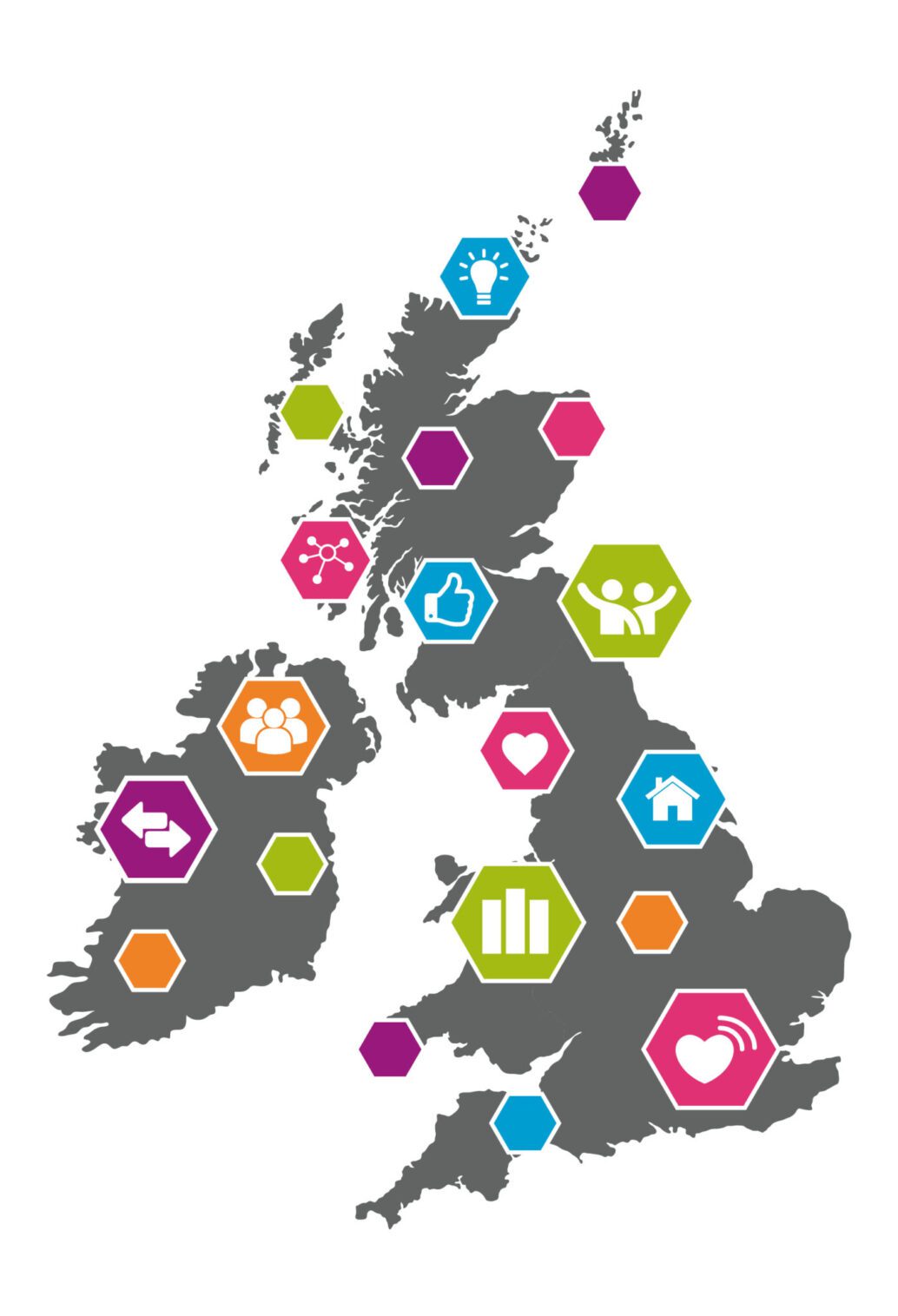
93% of PEOPLE IN THE UK AND IRELAND VIEW THEIR COMMUNITY AS KIND ON WORLD KINDNESS DAY
- Report on kindness is the first and largest of its kind
- Data shows that kindness is linked to high feelings of life satisfaction
The first ever quantitative survey carried out on kindness in communities and public services has revealed that almost everyone within the UK and Ireland views their community as a kind place (93%) and most reciprocate by helping people in their area who need it (73%). The findings coincide with World Kindness Day which is being celebrated across the globe today (13th November).
The Ipsos MORI research, commissioned by Carnegie UK Trust, is part of the Trust’s new Quantifying Kindness report and commitment to exploring the extent to which communities are kind places and whether or not people experience kindness from each other and the services they use. The researchers spoke to over 5000 people to build up a picture of kindness across the UK and Ireland as a whole and for the nations and regions.
Across the UK and Ireland high life satisfaction is linked to strong experiences of community kindness: those who have strong experiences of community kindness are likely also to experience high levels of life satisfaction.
Within this positive picture, there are some differences in groups who are likely to strongly agree about kindness in their communities:
- Women are more likely than men report strong experiences of kindness
- Those in rural areas are more likely to report community kindness than those in cities
- Older age groups are more likely than millennials to experience and reciprocate kindness in their community.
For public services, the survey found that people generally perceive public services as kind (from 83% of public transport users to 89% of GP users). Public libraries and GP Practices are seen as the kindest public services. Again, there are differences across groups:
- Older people are more likely to report strong experiences of kindness in four of the five public services included in the survey (GPs, public libraries, social care services, public transport – but not police where there was no relationship with age).
- People in Scotland are most likely to report strong experiences of kindness in public services, and people in England the least.
Jennifer Wallace, Head of Policy at the Carnegie UK Trust, said: “Much is known at a psychological level about kindness as a relational concept and how it helps build a sense of belonging and contributes to wellbeing. Less is known about the extent to which our communities are kind places. This report presents the findings of the first, and largest, survey that explores this issue in depth.”
The research found:
- The majority of people in the UK and Ireland report being highly satisfied with their life (82%).
- 93% of people in the UK agreed that people in their local area are ‘generally kind’ (97% in Ireland).
- 86% agreed that if their house was empty, they could count on someone in their area to keep an eye on it (89% in Ireland).
- 84% agreed that they make time to speak to their neighbours (85% in Ireland).
- 84% agreed they could turn to someone in their local area for practical help and advice (88% in Ireland).
- But only 68% agreed they could do this for emotional support (71% in Ireland).
- 82% people in Ireland agreed that they had helped someone in their community in the last 12 months, compared to 73% in the UK.
- In the UK, 91% agreed that members of their community are treated with the most kindness from their local library, over their GP practice (89%), public transport (83%), local police (84%), and social services at (83%)
Jennifer, continued: “What is refreshing is that the majority of people in the UK are highly satisfied with their lives and that most can rely on those around them to support their wellbeing. In a society which is as fast paced as it’s ever been, it’s humbling that we can still count on each other.”
* Community was defined as within a 15 minute walk and people were asked not to include family members or those they lived with when thinking about kindness in their communities.
* The research was carried out by Ipsos MORI for the Carnegie UK Trust. The Carnegie UK Trust chooses to run these surveys with representative random sampling for approximately 1000 people within each of the legislative jurisdictions that the organisation covers: Scotland, England, Wales, Northern Ireland and Ireland.
Media enquiries
Please contact Kirsty Anderson or Gaynor Kay at Grayling:
0131 260 2510